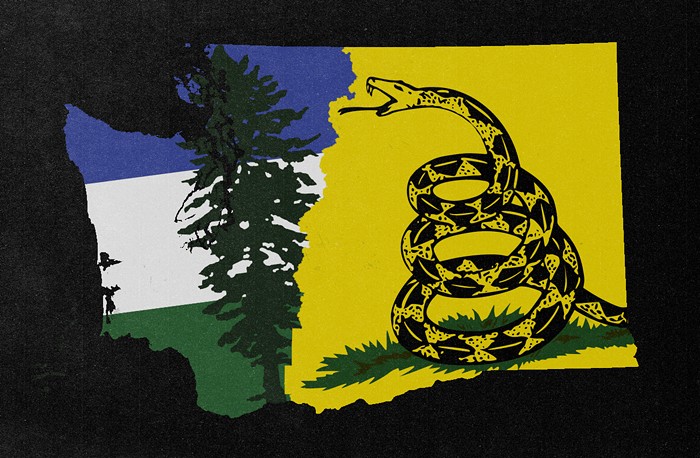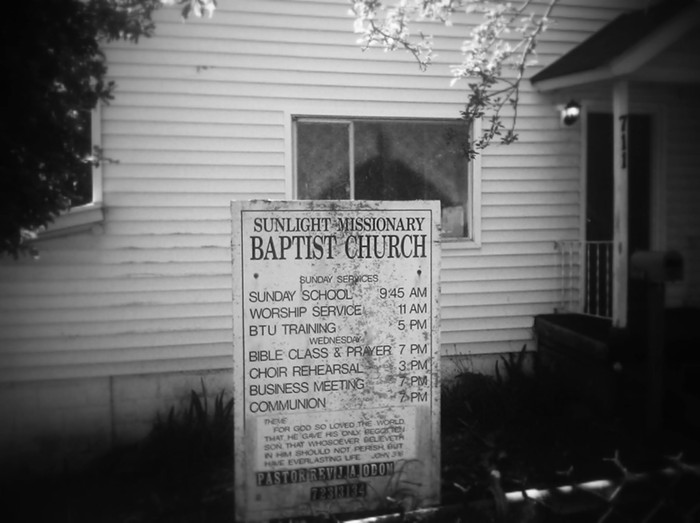
In a unanimous vote today in Olympia, the Washington State Public Disclosure Commission went against the wishes of lobbyists for Facebook and Google and affirmed that digital platforms need to actually know when they've sold political ads aimed at influencing this state's elections.
In September, Big Tech lobbyists had argued to the PDC that it's too burdensome, and even "technologically impossible" for Facebook, Google, and other tech titans to comply with Washington State's groundbreaking election transparency regulations. Those regulations require the companies to first be aware they've sold a political ad, and then disclose significant information to the public if the ad is aimed at Washington voters.
Rose Feliciano, the Northwest lobbyist for the Internet Association, which counts America's biggest tech titans among its members, said today's vote was "disappointing" and that the PDC had "missed opportunities to achieve our shared goal of transparency and accountability."
In particular, Feliciano said it was unfortunate the PDC had not gone along with Big Tech's effort to shift the burden for identifying political ads entirely away from online ad-selling behemoths such as Facebook and Google.
"Campaigns," Feliciano said, "should be required to disclose the political nature of an advertisement."
But Washington State campaigns are already required to make disclosures around political ad purchases, and they do so all the time.
In addition, under a forward-thinking 1972 law approved by an overwhelming majority of Washington State voters, commercial advertisers such as Facebook and Google are required to independently disclose details on local political ad purchases.
Among other things, this allows the public and the media to make sure campaigns are telling the truth about their ad spending—which, no one will be shocked to hear, sometimes doesn't happen.
It's the requirement for disclosure from commercial advertisers that Big Tech wanted changed in its favor, giving platforms like Facebook and Google freedom to, essentially, not be totally sure about what kind of ads they're selling. (Even though the companies' failure to fully realize what kinds of ads they were selling was at the heart of the Russian influence operation during the 2016 presidential election.)
Instead of giving Big Tech what it wanted, PDC chair Anne Levinson, vice chair David Ammons, and member William Downing all voted this morning for a "final rule" on political ad disclosure that continues to require Facebook, Google, and any other commercial advertisers to not only know when they've sold a political ad aimed at Washington State voters, but also promptly make details about such ads "available for public inspection."
Those ad details, according to the final rule, must include:
• The ad itself.
• Who or what the ad was supporting or opposing.
• The name and address of the ad's purchaser ("so that the public can know who paid for the advertising or communication").
• The ad's cost.
• And, for digital ads, the total number of impressions the ad received as well as "a description of the demographic information (e.g., age, gender, race, location, etc.) of the audiences targeted and reached, to the extent such information is collected by the commercial advertiser as part of its regular course of business."
Earlier this year, the tech companies' ongoing failure to make such local political ad details available to The Stranger and others led Washington State attorney general Bob Ferguson to file a lawsuit against Facebook and Google. Arguments in that case are ongoing.
In addition, Google's concern that it simply cannot comply with the PDC's rules led the company to announce this summer that it would no longer sell political ads in Washington State. (Google has had some trouble keeping that promise. The company has also argued, in court filings, that if you look at the definition of "political advertising" in a certain special way, Google never actually sold any political ads in Washington.)
I asked spokespeople for Google whether the company will continue its ban on Washington State political ads in light of today's PDC vote. I've received no response, but will provide an update if I do.
Facebook, for its part, has continued to sell political ads in Washington, even though its online ad archive fails to disclose all the information required by the PDC's rules.
In October, after The Stranger filed a complaint with the PDC over Facebook's failure to disclose required ad information, a lawyer for Facebook told the PDC that Facebook believes it's actually immune from Washington State's political ad rules.
In response, the PDC referred the matter to Attorney General Ferguson's office.















